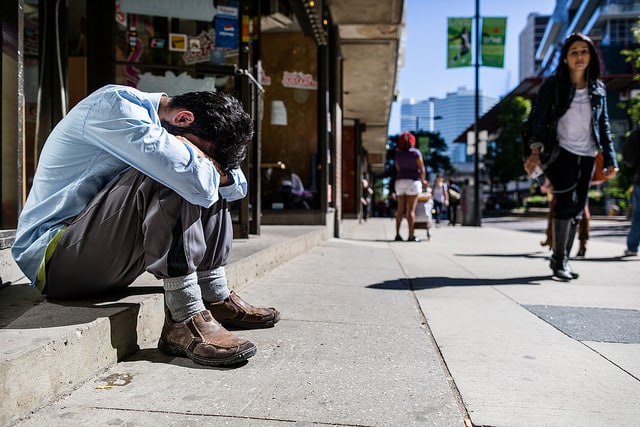“But how do you know I’m forgiven?”, he said, blinking away tears, his head hanging, not wholly convinced. Or rather trying to refute my insistence of mercy, not wanting to claim something false or unorthodox. I was a Jesuit, he reminded me, and that, in his mind, was reason enough not to trust me or my theology. “Perfidy”, he said, peering down his nose at me. I had to look the word up when he went to the restroom. (pərfidē noun; deceitfulness, untrustworthiness. Late 16th century origin, via French from Latin.)
He came to me by way of a third party, a friend increasingly concerned about his erratic behavior. But his decline was more than mental, she knew. It was spiritual, too. His mind was becoming unhinged right where it met his search for a perfect practice of the faith. Couldn’t you help him?
We went back and forth for a good half hour, or more — the despondent young man filled with a distrustful self-hate and the conflicting desires to be both forgiven and doctrinally pure and the tired Jesuit whose vocabulary wasn’t very good. His questions were pointed and meandering. He asked me about confession and intent, about absolution and memory, about carelessness and compunction. He spoke around some abstract behavior concerning bed and bottle, I think. I assume. It was tough to tell, and thoroughly unimportant to my way of thinking. “Jesuit-think,” he noted.
God is love, I assured him. God is mercy, which gives sinners hope, all of us. Forgiveness is promised, already given, but in my experience it’s not in the juridical way you’re thinking of it. “Substantially orthodox,” he ruled, seemingly annoyed that I hadn’t tried to rationalize his behavior or redefine the nature of sin. What does this kid want from me?, I wondered.
**
We all want something, many things. And from others. To want of another is to commit an act: it is to make a claim on them. In that wanting – of knowledge, of help – we make claims on one another, all the time, and on many levels. Please, we say. Couldn’t you? Aren’t there some words you might give to console and clarify? Can you give me something to fill the gaping maw, to slake the endless thirst, to abate the feelings of uncertainty, fear, and loss?
Couldn’t you help him?, she asked me, and in doing so she made a claim on both my perceived role as a helper in the Church and on my time. But how do you know?, he demanded, making a claim on my supposed expertise of the faith and also on my patience.
**
By the end of our endless conversation, if I hadn’t convinced him of God’s love I had at least convinced him to sign himself into an in-patient facility for observation. I responded to their many claims on me, but my response was not wholly my own, for in the midst of it all I turned to God and made my own claim on Him, asking for help, for patience, for the right words.
The young man wanted dogma, but he didn’t get it, not from me. Instead I gave him the fruit of my own claim on God. In my own want, in my own poverty, I turned and made my own needs known. Couldn’t you help me?
**
We are all hurting and we need one another. When I look back on that night of need many months ago, it deepens within me the truth that we belong to one another and that the claims we make on each other are right and good. Life lived together is all claim. Explain this. Answer for this. Represent this. Can I have some of your time, your talent?
Yes, you can. But in my own need for help, I will turn to make my own claim on the God I’ve come to know, the God who is my source. I will turn to God who claimed me first and made me claim-able for others. It’s a pyramid scheme of sorts, this life, but it’s wonderful and it’s ours.
–//–
The cover image, from Flickr user rana ossama, can be found here.



